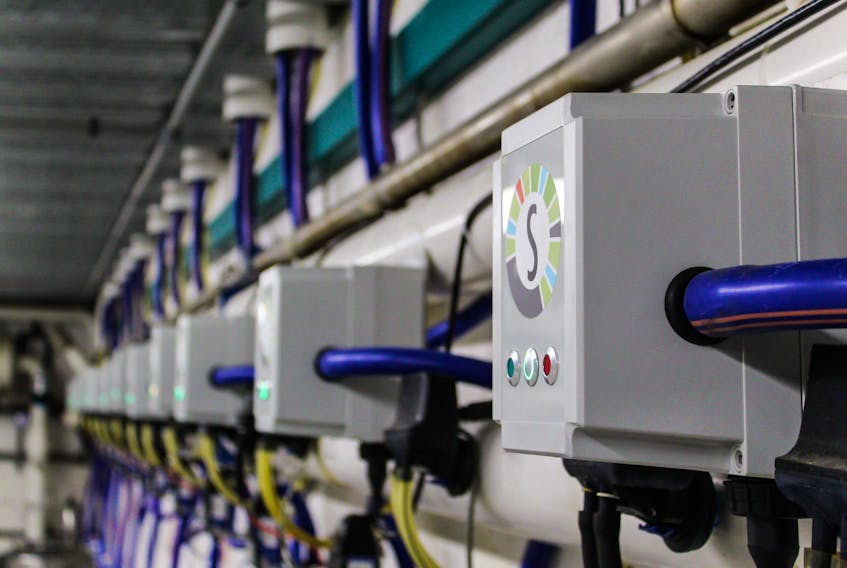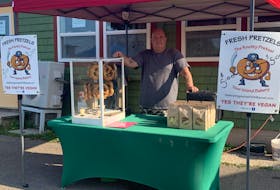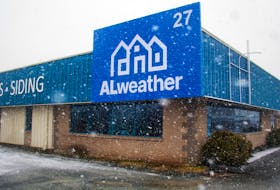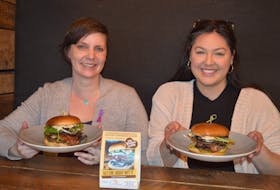In a new five-part series, SaltWire Network delves into some of the hottest startups in Atlantic Canada. Each story focuses on three startups shaping a cluster of the entrepreneurial economy. Part two focuses on agrifood and food tech startups.
PART 1: Three companies shaping Atlantic Canada's health and fitness startup scene
PART 3: Three companies shaping Atlantic Canada's green tech startup scene
PART 4: Three companies shaping the East Coast fintech startup scene
PART 5: Three companies shaping Atlantic Canada's medtech startup scene
SomaDetect

What’s the startup
SomaDetect is an agricultural technology startup that has developed a sensor that uses light-scattering technology, machine learning and artificial intelligence to analyze milk. “It’s a little box that fits into existing milking equipment,” explains SomaDetect CEO Bethany Deshpande. The sensor measures fat, protein, progesterone and somatic cell count — an indicator of udder health.
Why it matters
SomaDetect’s technology provides dairy farmers with real-time information about herd health and milk quality. For example, a somatic cell count lets farmers know if a cow is suffering from mastitis, an inflammation of the mammary gland. “When a cow has an infection like mastitis, they have a higher bacterial count,” Deshpande says. “It’s not good for milk, as it shortens the shelf life and reduces the quality of products a processor can make.” She says detecting mastitis early is also important for cow health, reducing the pain the animals experience and the amount of antibiotics needed.
How it started
Deshpande’s father, a biophysicist, accidentally discovered he could measure the somatic cell count of milk. Then she started to develop the technology with a small team working out of her apartment in Fredericton. The startup relied heavily on local farmers. “It's really dairy farmers in New Brunswick that taught us everything about how to milk cows,” she says. “For a long time, we were testing ugly little prototypes and the farmers helped us understand how best to fit it in and what it needs to do.” The sensors are now being tested at farms in the three Maritime provinces.
Show me the money
In January, the company received $3.9 million from Sustainable Development Technology Canada to pilot its in-line sensor technology across North America. Last August, it closed a US$2 million seed funding round with investments from the New Brunswick Innovation Foundation, the Western New York Impact Investment Fund, and New York Ventures. The investment follows previous Seed Investments from Cavallo Ventures, Dairy Farmers of America, Builders VC, and iGan Partners.
What’s next
The startup is now in a growth phase, Deshpande says, with ongoing trials and a commercial launch planned for later this year. The company said this week that technology developed by Valley Agricultural Software, the world’s largest provider of dairy management software, would be integrated into SomaDetect’s data system. The startup currently has 26 people in offices in Fredericton, Ontario and Buffalo, N.Y.
Navigate Food Safety Solutions
What’s the startup

Navigate Food Safety Solutions helps food manufacturers develop a food safety management system and reach certification in global food safety standards. The startup offers online training and onsite coaching at facilities throughout North America. “We build their capacity,” says co-founder Maureen Hanley. “We create a path … and we simplify it so it can be understood.”
How it started
Co-founder Alex Hanley was working as a global food safety auditor when the rules shifted. “He used to be able to help out a facility or suggest ways to solve a problem,” Maureen Hanley says. “Then it changed and he couldn't give advice anymore. It became just pass or fail. It paralyzed him.” The former auditor for AIB International (formerly the American Institute of Baking) branched out on his own to help food manufacturers of every size and production level reach global food safety standards.
Why it’s different
The Montague, P.E.I., startup helps facilities develop a food safety system. The idea is to create a program they can understand and maintain on their own — something Hanley says is not the industry norm. “We like to build their capacity,” she says. “We don't want them phoning us every time there’s a small issue.”
How it works
It starts with a phone call from a food manufacturer. “We have a chinwag on the phone to figure out what’s going on and what’s changed,” Hanley says. She explains that sometimes Navigate is called in when a company acquires a new customer or buys a new food plant and wants to ensure all operations are meeting the same standards. Navigate will do a two-day review and diagnostic of the plant. “We look at their people, their plant, their processes, and what they call their programs,” she says. The company will then provide a detailed report, and help them come up with safety program and be ready for an audit.
What’s next
Despite operating in a competitive, global field, Maureen Hanley says much of the work can be done from anywhere as long as they have “high speed internet and some courage.” Still, she admits they spend a lot of time on the road. Meanwhile, the startup is also “expanding in many directions,” she says, and building more online training.
FoodByte

What’s the startup
FoodByte has developed a software that helps food processors and manufacturers quickly build a food safety program. The cloud-based software can be used on a phone or tablet, and provides food facility workers with step-by-step instructions to comply with a company’s safety program. The workers log their actions and the outcomes into the software, providing real-time information about food safety. This helps food processors meet regulatory requirements and reduce recalls.
Why now
The Canadian Food Inspection Agency is phasing in a suite of new regulations on food commodities. Some of the rules took effect in January 2019, while the rest will be enforced later this year. The federal agency says the regulations will ensure greater food safety. Yet FoodByte co-founder Matthew Winchester says some food processors aren’t prepared. “We’re looking down the barrel at these new laws,” he says. “If they aren’t followed, the government can impose fines or shut a facility down.”
The origin story
It started with 10,000 tonnes of carrots. While working with a different company, Winchester heard about a farmer who had to throw out an entire crop of carrots because of a paperwork error. “Somebody just didn’t fill out a form,” he says. “So the farmer wasn’t permitted to bring the product to market.” A little while later, he got a tip from a former food inspector. “He came up to me and started telling me that I needed to help him write software to save the food industry,” Winchester says. After a followup meeting, Winchester decided to look into the new regulations.
The aha moment
As part of his due diligence, Winchester sat down with a Nova Scotia coffee roaster to figure out how food safety programs worked. “The light bulb went off for me when I asked what their monitoring program looked like,” he says. “They came back with a shopping cart full of binders and they started loading them on the table.” Winchester clarified that he only wanted the most recent paperwork, and was told the roomful of binders were for the current quarter only. The computer scientist was stunned. He saw an opportunity for a software that could transform how the industry keeps track of its safety programs.
What’s next
The Wolfville startup — its office is at Acadia University — now has six employees and eight customers. FoodByte currently has an investment round open, and is expecting to grow in the coming months. As the new federal food safety regulations come into effect, Winchester says the startup is expecting a busy year.









